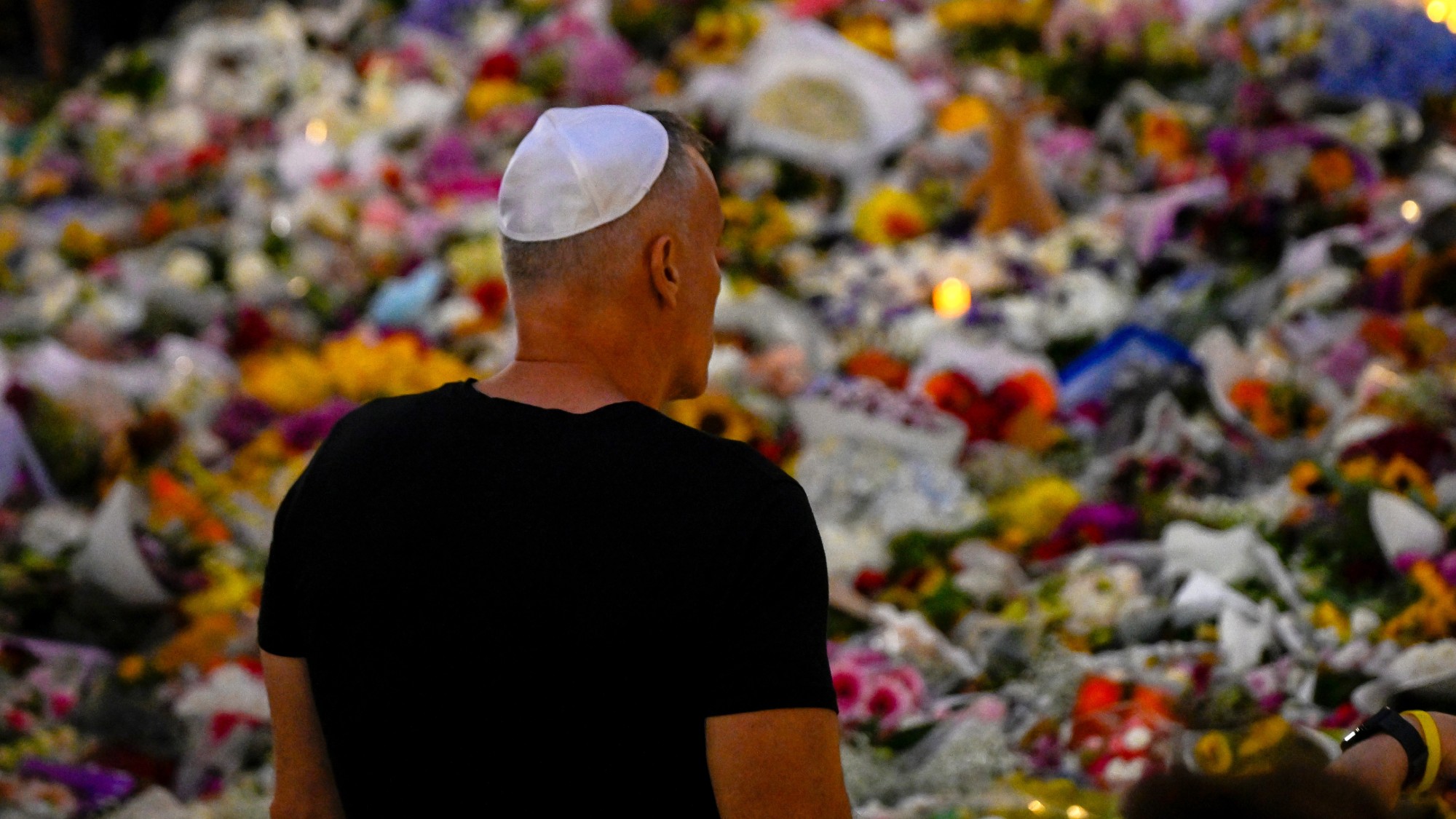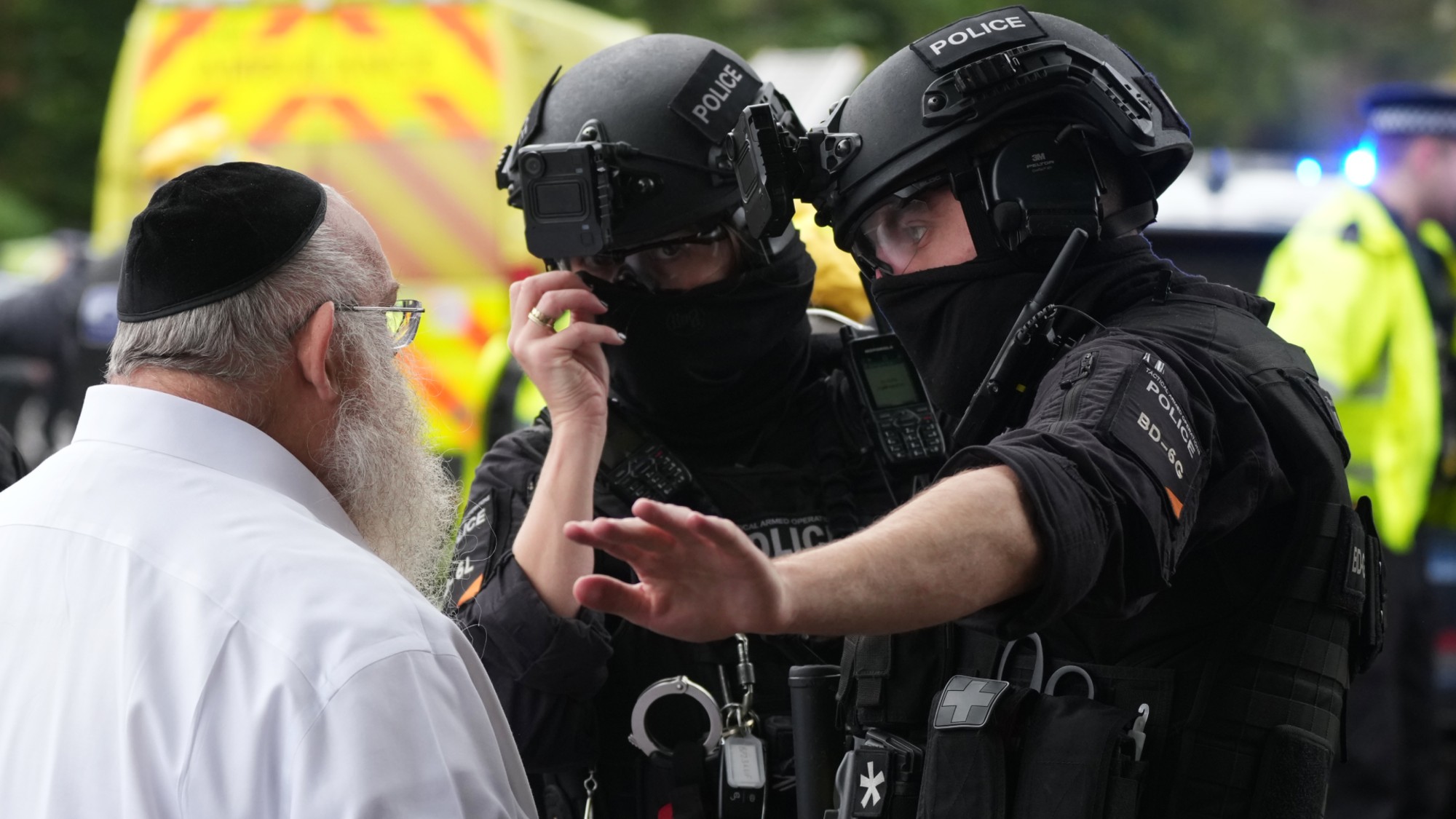Rifkind’s terror warning makes me angry not fearful
It is the state’s job to protect us from Islamist terror – not to pass the buck to the public

A free daily email with the biggest news stories of the day – and the best features from TheWeek.com
You are now subscribed
Your newsletter sign-up was successful
Sir Malcolm Rifkind’s warning that the British public (that’s ‘us’) has grown complacent over the risk of a terrorist attack - he labels our apparent lack of vigilance as “seriously disturbing” - sent a cold shiver down my spine; of outrage, not fear.
We are used to politicians (that’s ‘them’) passing the buck but this was extraordinary: the chairman of the Parliamentary Intelligence and Security Committee’s first reaction to some very disturbing developments in the fight against Islamist terror is a bollocking for the public - surely the very last line of defence against terrorism, not the first group to be blamed.
His outburst seems to be part pique and part panic. Pique in that the ever more intrusive checks on passengers at airports required to thwart the latest technical developments in bomb miniaturisation are proving unpopular. To add insult to injury some of the top suspects are British jihadists.
The Week
Escape your echo chamber. Get the facts behind the news, plus analysis from multiple perspectives.

Sign up for The Week's Free Newsletters
From our morning news briefing to a weekly Good News Newsletter, get the best of The Week delivered directly to your inbox.
From our morning news briefing to a weekly Good News Newsletter, get the best of The Week delivered directly to your inbox.
Surprise, surprise. After a quarter of a century of dismantling our borders, uncontrolled immigration and enforced diversity, some very uncomfortable chickens are coming home to roost. And believe it or not, for once it’s not entirely the fault of the 1997-2010 Labour government.
Embarkation checks, essential for controlling our borders, were abandoned by the Conservative government in 1994 while Sir Malcolm was Secretary of State for Defence. The effect of this reckless decision has been depressingly predictable: if you can count them all in, but can’t count them all out – you can’t count them at all.
The great British public’s disenchantment with the country’s current security regime is reinforced by recent adverse developments in Iraq. For years we have been told that whatever other mistakes were made in Iraq, at least the downfall of Saddam Hussein was a good thing.
It was a threadbare argument but one a lot of people were prepared to go along with, if only to honour the considerable efforts and sacrifices made by British troops in the country between 2003 and 2009. With the west of Iraq now dominated by Isis, and much of the Shia parts of the country now proxy provinces of Iran, it is no longer possible for a rational human being to subscribe to it.
A free daily email with the biggest news stories of the day – and the best features from TheWeek.com
In other words, the long-term strategic effect of the 2003 invasion has turned out to be the complete opposite of what it said on Tony Blair’s tin – and the penny has at last dropped.
The feeling of dislocation and disbelief is further heightened by more recent folk memories of the UK’s attempt (thankfully aborted) to intervene in Syria on the side of the rebels. The deliberate weakening of President Assad by Saudi/Qatari money and western influence contributed directly tothe emergence of Isis. I must have some bumper stickers made: “Honk, if you thought Assad was the lesser of two evils.”
Panic, I strongly suspect, is also involved because as the chairman of the Parliamentary Intelligence and Security Committee Rifkind knows perfectly well that there was no strategic warning of the breakout of Isis from Syria into Iraq. We had no idea it was going to happen.
In contrast, there have been plenty of strategic warnings about the security risks posed by the hundreds of British jihadists returning from Syria and keen to blow many of their fellow countrymen to kingdom come. Except it would appear that there is very little the current political elite seem prepared to do about it.
There was a vivid phrase used by non-commissioned officers at Sandhurst in my day to describe those moments of chaos and disorder when none of the officer cadets in their tender care appeared to know what was going on or what to do: “Gorillas in the mist” they would mutter.
“Gorillas in the mist” is sadly where we are with the United Kingdom’s security and intelligence establishment, both professionals and politicians. They are unable to provide strategic warning of very much – even the predictable results of their own diplomatic and intelligence follies, as in Syria. And they seem unable to act in any meaningful way to protect us from British jihadists coming back to Blighty.
Sir Malcolm may be right – a vigilant public may be all there is between us and an impending terrorist outrage. But if true, this has profound consequences for the relationship between the individual and the state. If the modern British state refuses to protect us against obvious threats, in practical terms easily brought under control, then perhaps we should start thinking about alternative arrangements.
Should we demand an end to the state’s monopoly of force? Or demand the right to bear arms?
Or should we be willing to abandon some of our apparent freedoms -and severely curtail the freedoms of others - in exchange for the right to live free of the constant shadow of Islamist terror?
-
 Ex-South Korean leader gets life sentence for insurrection
Ex-South Korean leader gets life sentence for insurrectionSpeed Read South Korean President Yoon Suk Yeol was sentenced to life in prison over his declaration of martial law in 2024
-
 At least 8 dead in California’s deadliest avalanche
At least 8 dead in California’s deadliest avalancheSpeed Read The avalanche near Lake Tahoe was the deadliest in modern California history and the worst in the US since 1981
-
 Political cartoons for February 19
Political cartoons for February 19Cartoons Thursday’s political cartoons include a suspicious package, a piece of the cake, and more
-
 How the ‘British FBI’ will work
How the ‘British FBI’ will workThe Explainer New National Police Service to focus on fighting terrorism, fraud and organised crime, freeing up local forces to tackle everyday offences
-
 How the Bondi massacre unfolded
How the Bondi massacre unfoldedIn Depth Deadly terrorist attack during Hanukkah celebration in Sydney prompts review of Australia’s gun control laws and reckoning over global rise in antisemitism
-
 Who is fuelling the flames of antisemitism in Australia?
Who is fuelling the flames of antisemitism in Australia?Today’s Big Question Deadly Bondi Beach attack the result of ‘permissive environment’ where warning signs were ‘too often left unchecked’
-
 Ten years after Bataclan: how has France changed?
Ten years after Bataclan: how has France changed?Today's Big Question ‘Act of war’ by Islamist terrorists was a ‘shockingly direct challenge’ to Western morality
-
 Arsonist who attacked Shapiro gets 25-50 years
Arsonist who attacked Shapiro gets 25-50 yearsSpeed Read Cody Balmer broke into the Pennsylvania governor’s mansion and tried to burn it down
-
 Manchester synagogue attack: what do we know?
Manchester synagogue attack: what do we know?Today’s Big Question Two dead after car and stabbing attack on holiest day in Jewish year
-
 The Miami Showband massacre, 50 years on
The Miami Showband massacre, 50 years onThe Explainer Unanswered questions remain over Troubles terror attack that killed three members of one of Ireland's most popular music acts
-
 The failed bombings of 21/7
The failed bombings of 21/7The Explainer The unsuccessful attacks 'unnerved' London and led to a tragic mistake